#victimsvoicesleadtheway
#renate
#filmfestival
#modernslavery

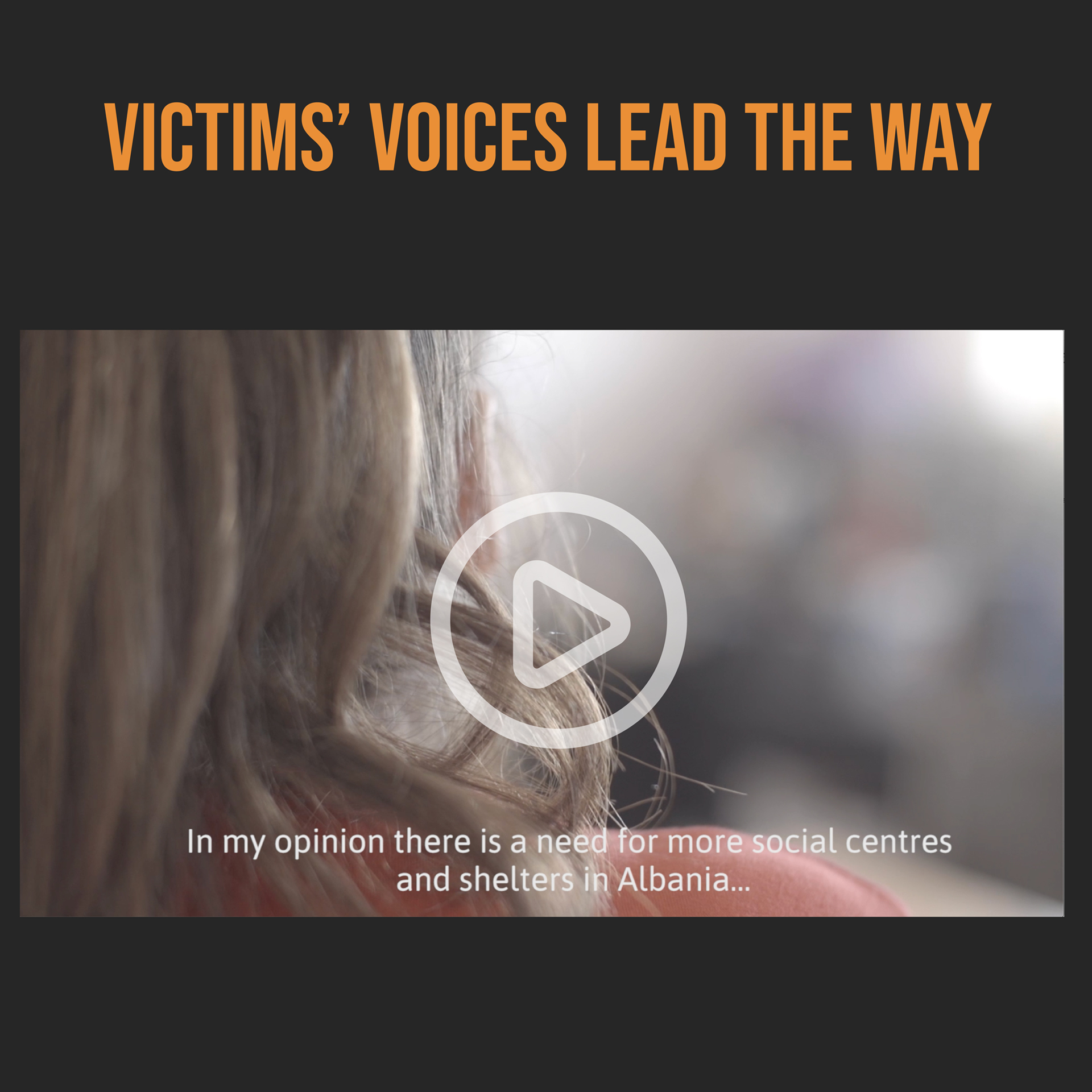
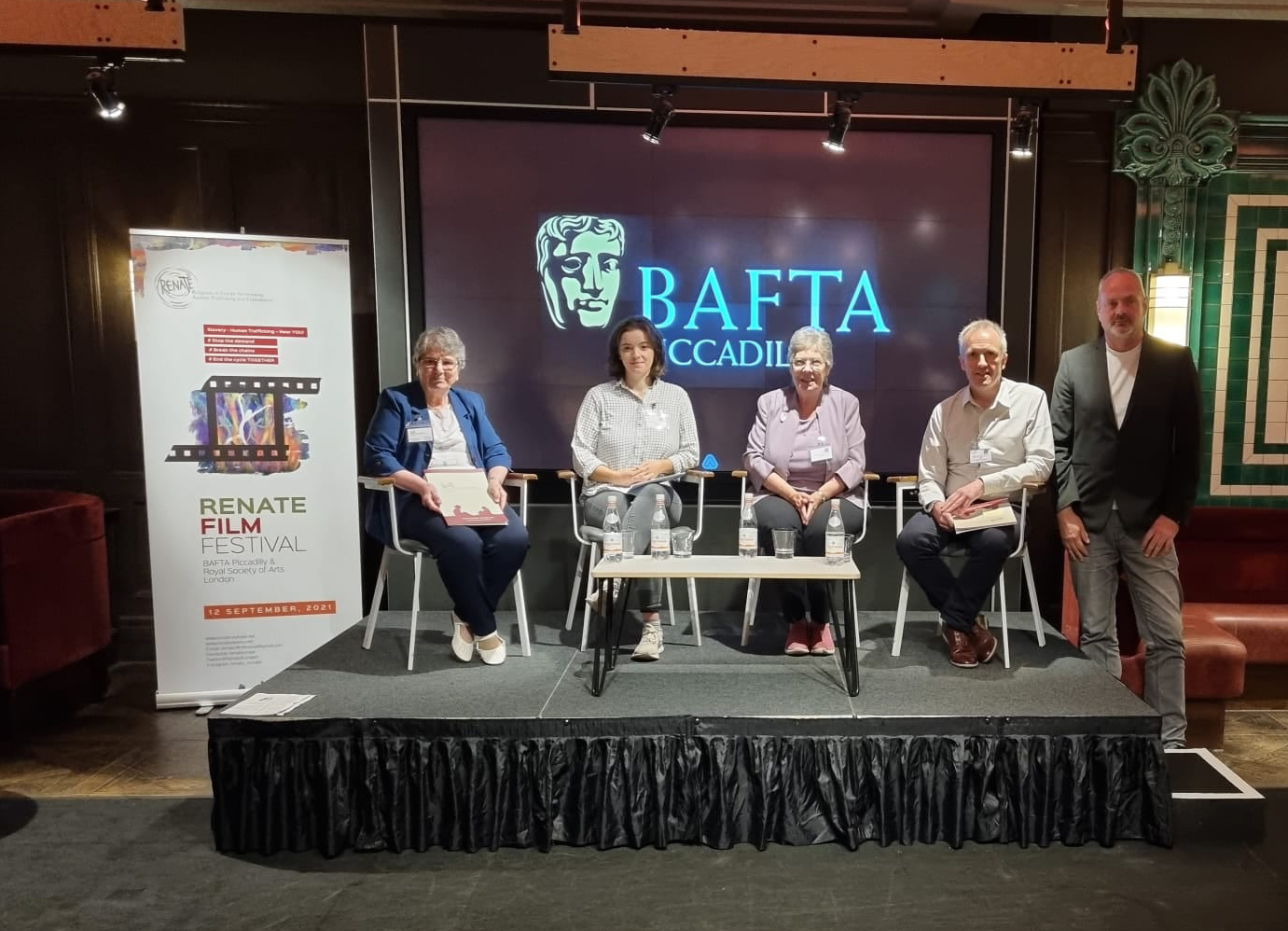
RENATE members and Press representatives gathered at noon at the BAFTA Piccadilly,(British Academy of Film and Television Awards) London, on 29 July 2021 to launch the RENATE Film Festival.
Mr. Julian Shaw, Director BAFTA Piccadilly, welcome everybody and gave support for RENATE’s Festival of Film, stating he would like to see such a festival become a regular calendar event in the work to raise awareness about and advocate against the crime of human trafficking.
Dr. Jon Hackett, Head Communications, Media and Marketing at St. Mary’s, Twickenham will act as Moderator of the Film Festival when it takes place at the BAFTA Piccadilly on Sunday, 12 September 2021 and spoke at the Press launch about the powerful communications instrument which film is recognised for. Jon congratulated RENATE on being innovative and dynamic in its approach to communicating through the medium of film and the possibilities for extended reach to as wide an audience as possible when raising awareness about Human Trafficking and Exploitation. He introduced each of the panel.
The press and panelists then watched a newly-created innovative survivor led film produced in Albania by a partnership of NGOS all members of RENATE included Different and Equal, Vatra, Mary Ward Loreto and Shkej. This was totally produced by all protagonist for free as part of the effort of raisin awareness against Human Trafficking on The World day against Human Trafficking, July 3oth 2021.
Imelda Poole, IBVM, President RENATE Europe, linked this film with her input. She firstly welcomed the participants on behalf of RENATE and thanked BAFTA for their amazing contribution to this event. She gave a background and vision of RENATE linking this with stories from the films and the recent issue of UK children trafficked to Syria by radicalisers and refused entry back into the UK as now deemed a danger to society! each of whom received the RENATE Film Festival marketing materials from the organizing team and volunteers.
Following her input we showed a short second film related to labour trafficking produced by Caritas Slovakia.
RENATE member Marie Power, HFB, also related her input on RENATE and advocacy work. She spoke about the importance and role which film as a medium can play in advocacy, in addition to awareness-raising, prevention, protection and with increasing confidence. She showed how film can be deployed as a medium through which the voices of human trafficking survivors can lead the way in the work to end this crime against the dignity of the human person.
Rachel Sweetman, RENATE’s social media person, concluded the inputs with a clear explanation of the film competition for young people.
The press launch was then followed with a dynamic panel Questions and answer session and this was followed by a networking reception, where the Press continued to interview and ask questions re RENATE and the film festival in a more informal way.
The whole event was a most moving and challenging debate for all participants. We came away animated and ready for the next steps in the mission.
Submissions for the Film Festival Competition are accepted up to 20 August 2021.
For more information about the Film Festival competition: https://www.renateevents.net/film-competition
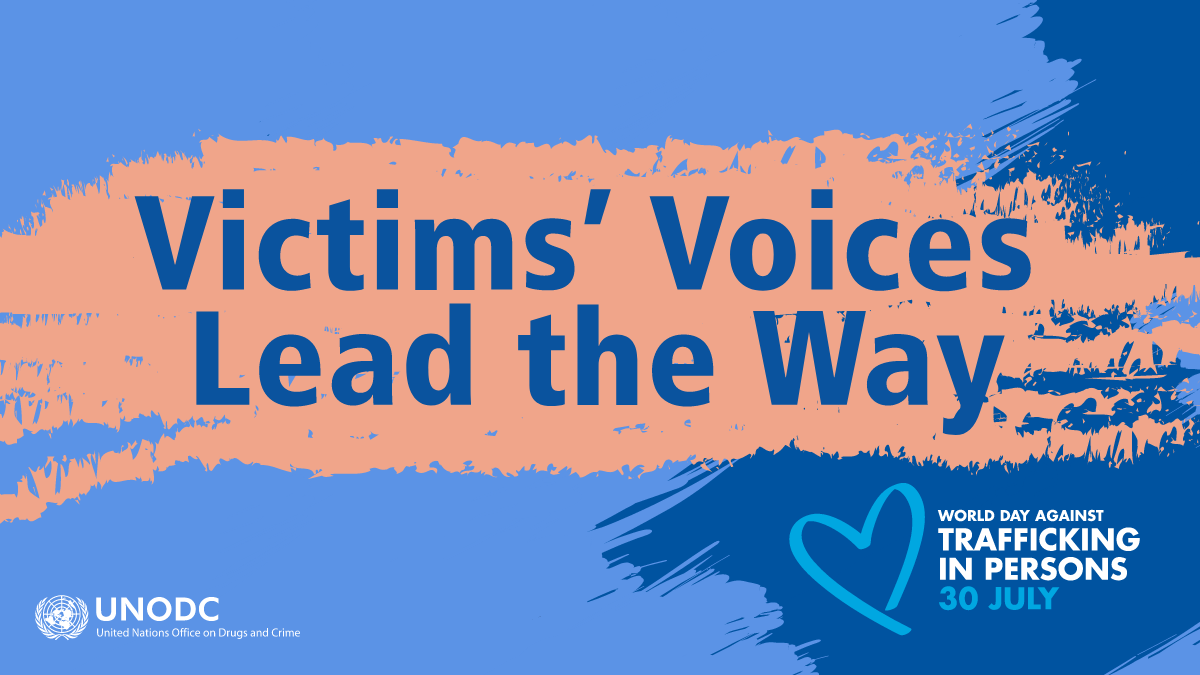
The World Day against Trafficking in Persons was proclaimed by the United Nations General Assembly, in its resolution A/RES/68/192.
Such International days and weeks are occasions to educate the public on issues of concern, to mobilize political will and resources to address global problems, and to celebrate and reinforce achievements of humanity. The UN has embraced them as a powerful advocacy tool.
Each year has seen specific themes identified, with this year’s theme being ‘’Victims’ Voices Lead the Way.’’
This year’s theme puts victims of human trafficking at the centre of the 30 July World Day against Trafficking in Persons campaign and will highlight the importance of listening to and learning from survivors of human trafficking. The campaign portrays survivors as key actors in the fight against human trafficking and focusses on the crucial role they play in establishing effective measures to prevent this crime, identify and rescue victims and support them on their road to rehabilitation.
Many victims of human trafficking have experienced ignorance or misunderstanding in their attempts to get help. They have had traumatic post-rescue experiences during identification interviews and legal proceedings. Some have faced revictimization and punishment for crimes they were forced to commit by their traffickers. Others have been subjected to stigmatization or received inadequate support.
Learning from victims’ experiences and turning their suggestions into concrete actions will lead to a more victim-centred and effective approach in combating human trafficking.
Together with Talitha Kum members across the world, the RENATE network participates in this year’s Social media campaign #CareAgainstTrafficking, creating a series of visuals which convey the work of Religious sisters in the mission to care against trafficking.
Follow us on all the social media platforms:
FaceBook: @renateurope
Twitter:@RenateEurope1
Instagram: renate_europe
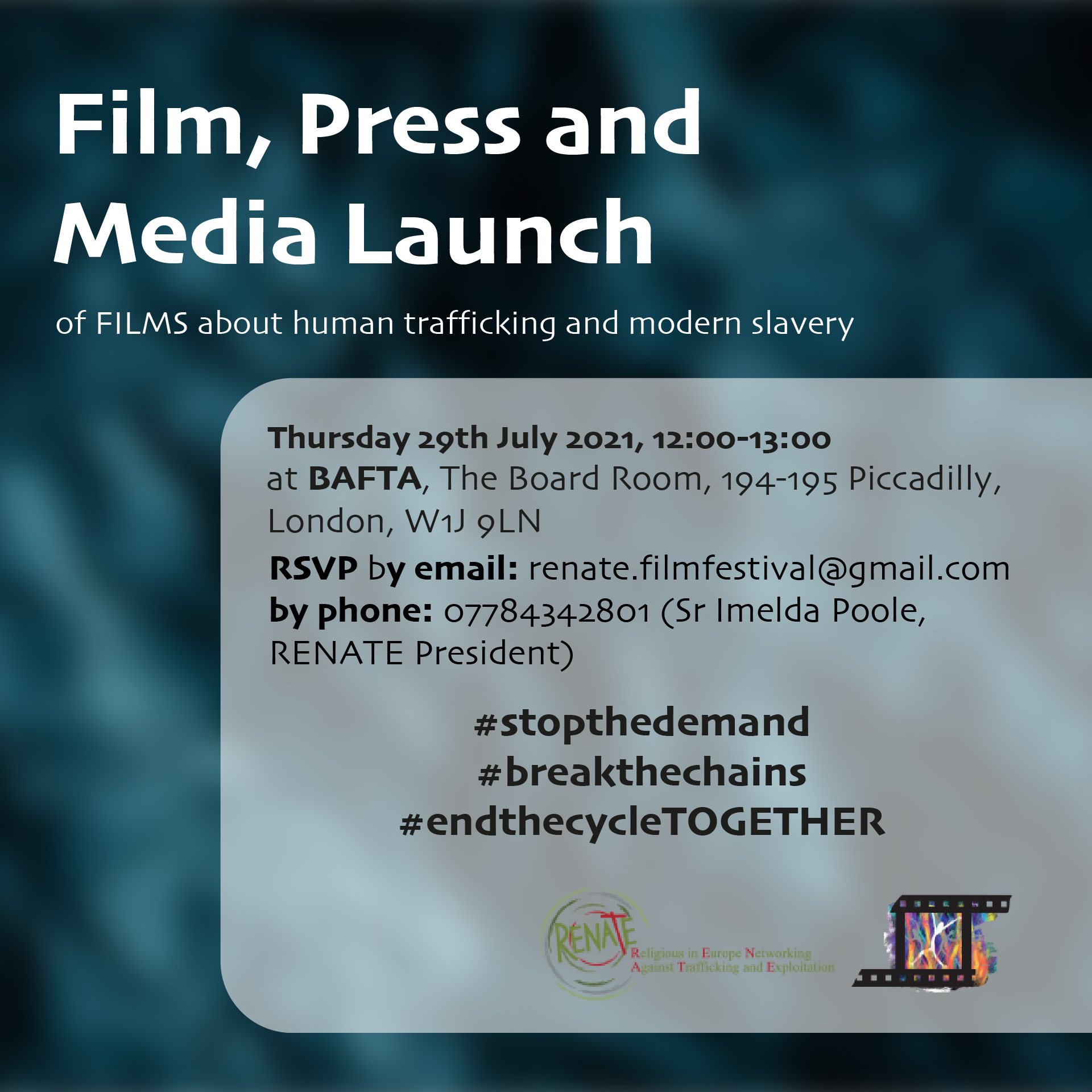
RENATE has the pleasure of inviting press to attend the Film, Press and Media Launch of the upcoming Film Festival, featuring films on the subject of human trafficking and modern slavery.
RSVP by email: renate.filmfestival@gmail.com,
or by telephone: 07784342801 (Sr Imelda Poole, RENATE President)
Read the invitation from RENATE President Sr. Imelda Poole, IBVM / MBE

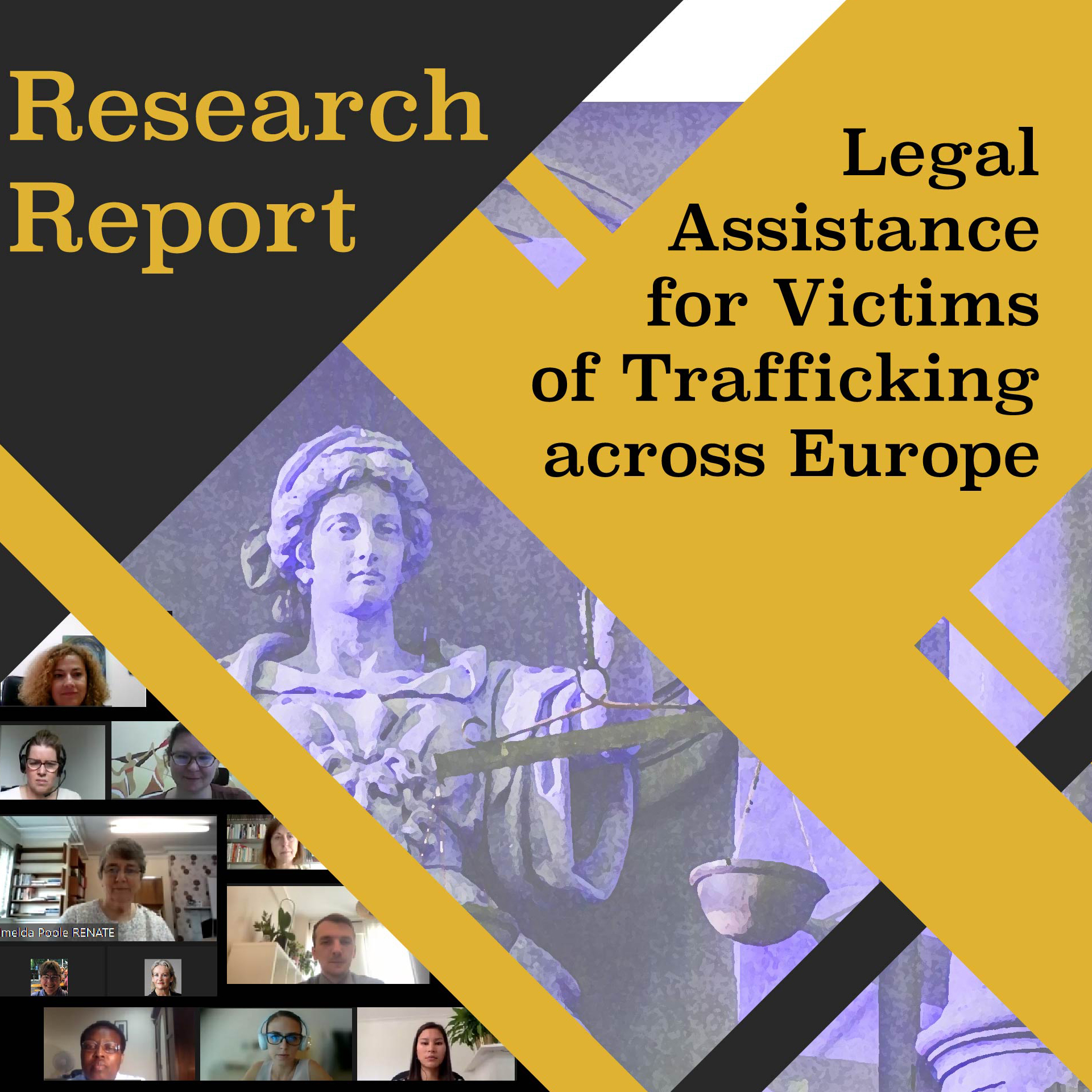
On 15 July 2021, RENATE launched its latest research, entitled ‘Legal Assistance for Victims of Trafficking across Europe with Special reference to six European Countries.’
The launch took place via Zoom, with 130 people attending from Europe and beyond.
The evidence-based research examines the provision of legal assistance to victims of trafficking in Albania, Bulgaria, England and Wales, Germany, Romania and Spain. Covering the three thematic areas of Awareness, Access and Quality, the research provides an understanding of how legal aid works in each of the six countries and explores the challenges to inform and promote advocacy.
The research acknowledges there are varying degrees of continuous efforts to eliminate the issue of Human Trafficking and exploitation amongst the six European countries in the research, concerns are expressed for the little positive results.
Critical findings are that there is an EU dimension to the problem and this in turn, demands an EU collaborative response to make an impact on the issue of Human Trafficking.
Free Legal aid is a precondition for the safety and protection of all victims of trafficking. Linked to this reality is that identification is key to the entitlement of legal aid. In this regard, a key area is the detection of potential victims and associated concerns for how the identification process takes place; what are the criteria and who decides. The vital role played by NGOs in the provision of legal assistance has been confirmed by the positive feedback received in this regard, in contrast to obstacles to accessing free governmental legal assistance such as government policies and formal processes which oftentimes make for protracted waiting times, and ensuing despair and lack of trust. In light of the aforementioned, the research finds it is necessary that NGOs should also be recognised as having in role to play in the identification of victims.
Throughout the six participating countries, it was found that there are inordinately long waiting times for legal aid and possible lengthy travel distances in order to access a provider of legal aid specific to the crims of human trafficking, which pose considerable obstacles to access for already vulnerable people who may not trust the authorities, may not have the language capacities and certainly do not have associated regular supports of friends and family as might be enjoyed by others accessing legal assistance.
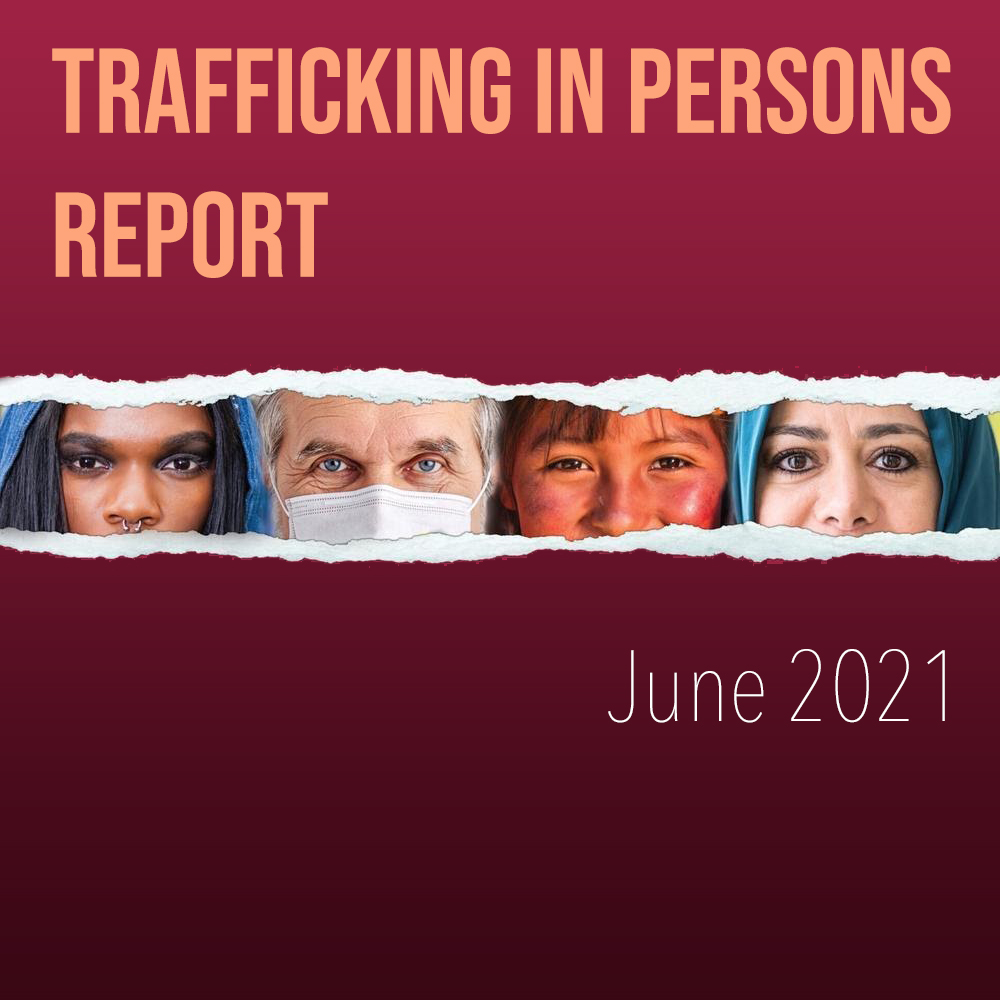
‘’This year’s Trafficking in Persons Report sends a strong message to the world that global crises, such as the COVID-19 pandemic, climate change, and enduring discriminatory policies and practices, have a disproportionate effect on individuals already oppressed by other injustices. These challenges further compound existing vulnerabilities to exploitation, including human trafficking. We must break this inhumane cycle of discrimination and injustices if we hope to one day eliminate human trafficking.’’ Secretary of State, Antony Blinken.
Last year marked twenty years of the US State Department’s publication of the annual Trafficking in Persons Report (TIP). Since then, the world has been engulfed in a pandemic, which destabilized healthcare and economies and continues to decimate the aged and vulnerable in all communities. Sadly, in spite of such hardships, the TIP report for 2021 documents the continuing increase in human trafficking and exploitation as the traffickers relentlessly pursue their ‘’trade,’’ taking full advantage of an evolving crisis and the diversion of resources in attempts to respond to the pandemic.
Yet despite the pandemic being unprecedented in our lifetimes, the TIP 2021 report also documents the flexibility, creativity, tenacity and dedication of countless thousands globally who found ways to ensure the continued work of prevention, protection and prosecution.
Statistically, the Report downgrades Cyprus, Israel, New Zealand, Norway, Portugal and Switzerland have been downgraded from the top Tier 1 category to Tier 2, where Saudia Arabia remains for its 2nd year.
Belarus, Burundi, Lesotho and Papua New Guinea have been moved from Tier 3 up to the Tier 2 Watch List, where Ireland remains for a 2nd consecutive year.
Malaysia is downgraded to Tier 3, after a string of complaints by rights groups and U.S. authorities over the alleged exploitation of migrant workers in plantations and factories. It joins Afghanistan, Algeria, Burma, China, Comoros, Cuba, Eritrea, Guinea-Bissau, Iran, North Korea, Nicaragua, Russia, South Sudan, Syria, Turkmenistan and Venezuela, each on Tier 3.
On a positive note, the Report celebrates the efforts of anti-trafficking professionals who continued to serve and identify victims as well as prosecute traffickers amidst the pandemic’s devastating effects on the world’s most vulnerable populations.
This year’s report honours eight 2021 TIP Report Heroes, individuals from around the world whose tireless efforts have made a lasting impact on the fight against human trafficking. It is a tremendous uplift to see RENATE President, Imelda Poole, IBVM, recognised with seven other inspirational leaders, Ms. Josiana Lina Bemaka-Soui, Central African Republic; Ms. Chantal Sagbo Sasse ep.Guedet Mandzela, Gabon; Mr. Shoichi Ibusuki, Japan; Ms. Shakhnoza Khassanova, Kazakhstan; Ms. Guillermina Cabrera Figueroa, Mexico; Mohammed al-Obaidly, Qatar and Rocío Mora-Nieto, Spain. Each person was carefully considered and finally chosen for this honour, where they have been described as an inspiring group of leaders, with the award celebrating their important and vital work.
The honorees will embark on a State Department-funded International Visitor Leadership Program (IVLP), a virtual exchange program that will allow them to gain professional development experience and connect with American communities and organizations committed to ending human trafficking.
While the TIP report and its findings make for sobering reading, let us be inspired by the encouragement from Ms. Kari Johnstone, Acting Director of the Office to Monitor and Combat Trafficking in Persons, US State Department.
‘’It is through collaboration and collective understanding of both the nuances of our profoundly changed world and the needs of those affected most by the compounding effects of both human trafficking and the COVID-19 pandemic that a path forward emerges.’’
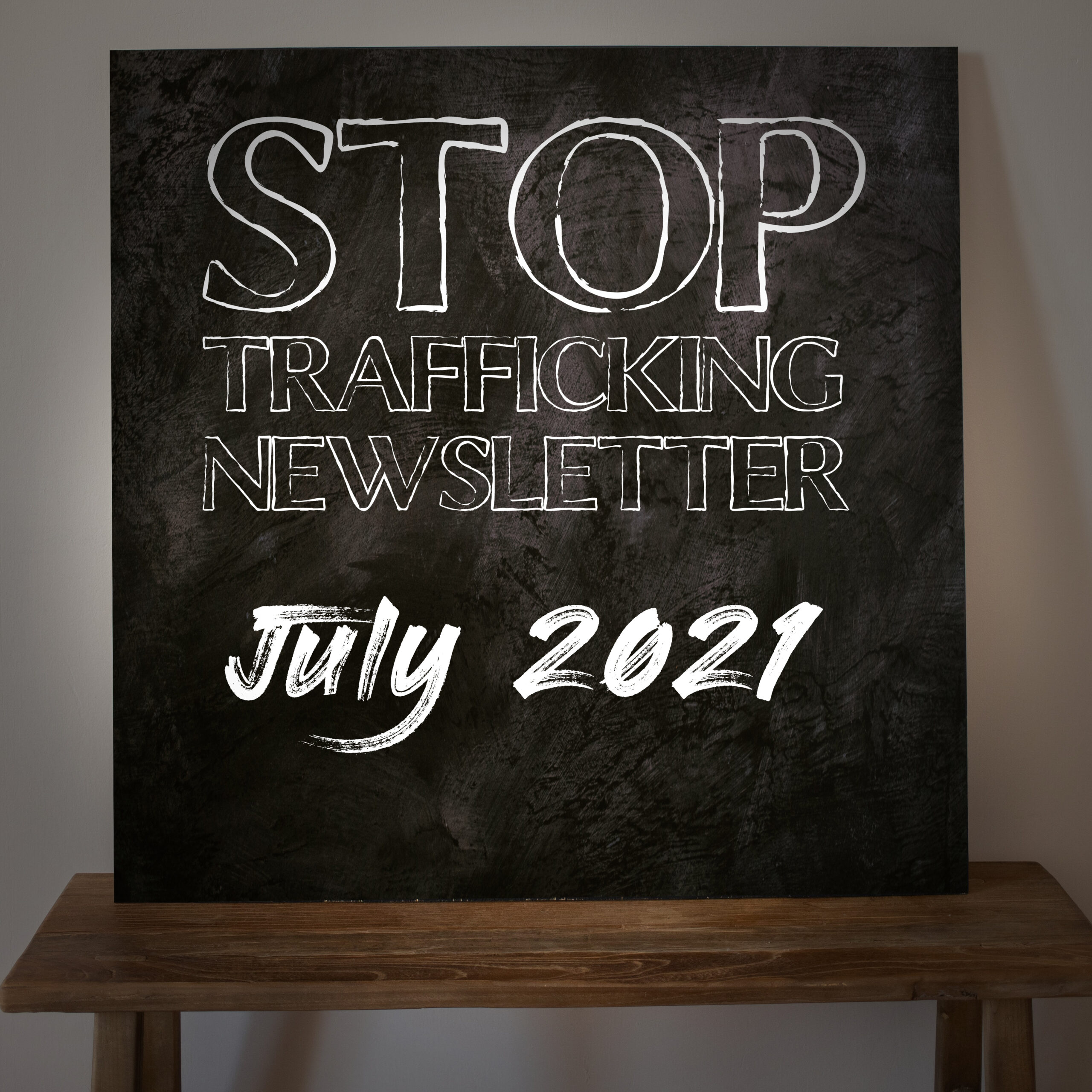
FOCUS: This month’s newsletter focuses on those who are exploited and trafficked as domestic workers.
The most common way traffickers control domestic worker victims is financial, thus it comes as no surprise that there is a wide disparity between the median hourly wage of domestic workers and the media hourly wage of other workers.
There is a spotlight on the Kafala (sponsorship) system in the Lebanon, which contributes to abuse and exploitative conditions of domestic workers. Forced child servitude is referenced in Haiti and the underworld of domestic servitude in Greece is analysed, with resulting exposure of a thriving economy on the exploitation of women from African countries and the Philippines, in domestic servitude.
An analysis of age profiles of populations in Southeast Asia indicates there will be an increase in demand for domestic workers….and therein lays the opportunities for traffickers eager to ply their trade.
Throughout, the document calls on governments and civil societies to ratify Conventions to protect the rights of women, migrants and domestic workers.